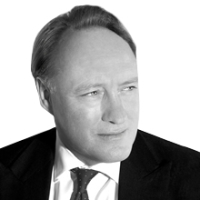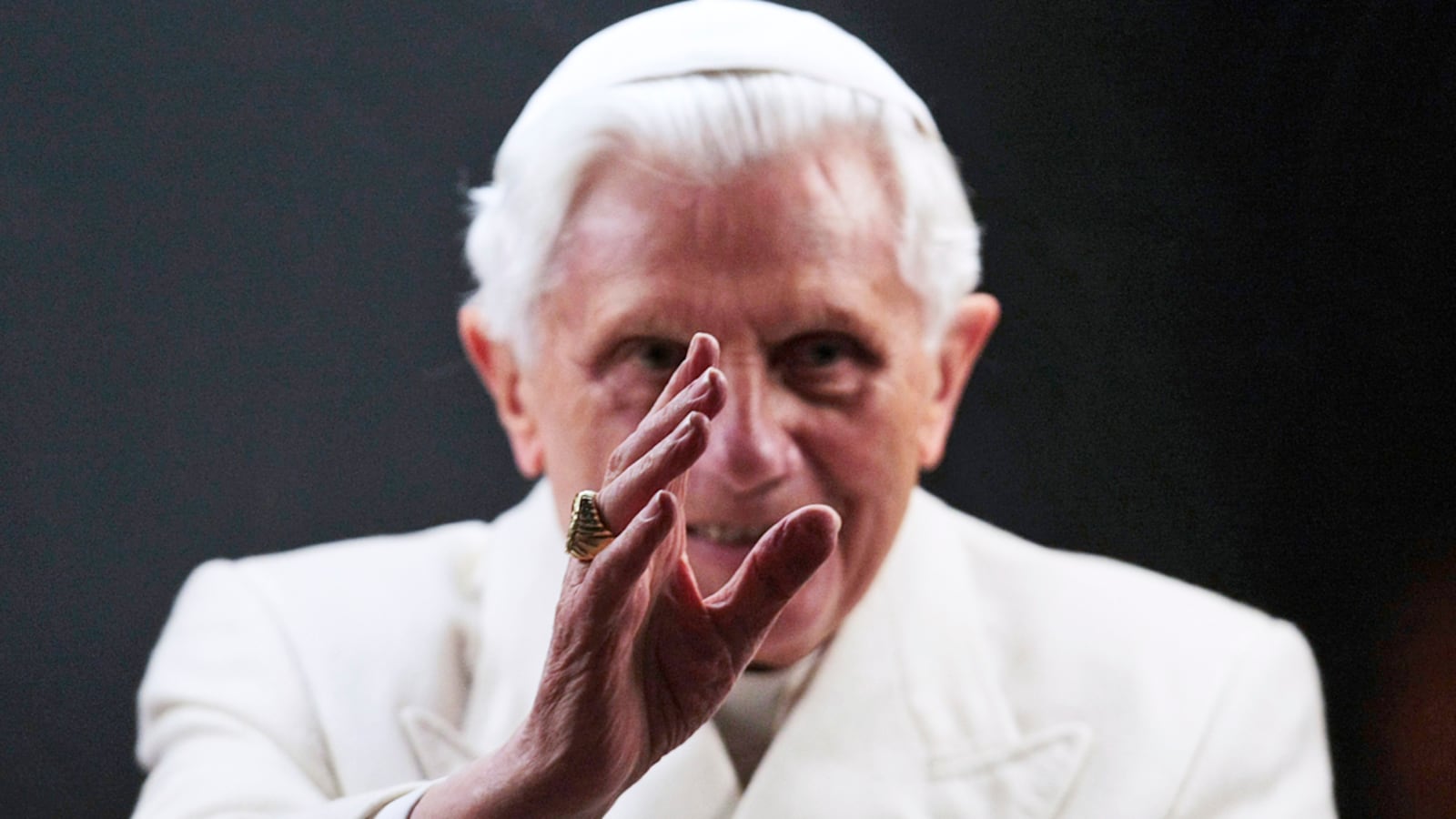Buried away on page 48 of the former press proprietor Conrad Black’s superb, soon-to-be-published autobiography, A Matter of Principle, is the answer to a burning question that very many people have been asking for several years: What does the pope really think about Islamic immigration into Europe? What, in his heart of hearts, does the Supreme Pontiff of the world’s estimated 1.15 billion Roman Catholics truly feel about the future of Western civilization in a continent that has seen such large-scale Muslim immigration over the past half century?
Everyone remembers the massive international controversy surrounding Pope Benedict XVI’s lecture at Regensburg University in September 2006, when he quoted the Byzantine emperor Manuel II Palaiologos, one of the last Christian rulers before the fall of Constantinople to the Ottomans: "Show me just what Muhammad brought that was new and there you will find things only evil and inhuman, such as his command to spread by the sword the faith he preached." There were riots in the streets of many Muslim countries, the Pakistani Parliament demanded a retraction, Christian churches were firebombed—including five in the West Bank and Gaza, our exciting new Palestinian state—and 100 Muslim clerics wrote an open letter criticizing the speech, even though all the pope was doing was quoting someone else. As security was stepped up around St. Peter’s, the Vatican issued an apology, saying that the pope "sincerely regrets that certain passages of his address could have sounded offensive to the sensitivities of the Muslim faithful and should have been interpreted in a manner that in no way corresponds to his intentions."
Now, however, Lord Black’s authoritative and highly readable new memoir (full disclosure: I’m a dedicatee) reveals that at a small dinner party given at the home of Cardinal Gerald Emmett Carter, the then–cardinal archbishop of Toronto, in 1990, the then-cardinal Joseph Ratzinger—now Pope Benedict—"lamented 'the slow suicide of Europe:' its population was aging and shrinking, and the unborn were being partly replaced by unassimilable immigrants. He thought that Europe would awake from its torpor, but that there were difficult days head." Black concluded that "Like other cardinals of my acquaintance (including our host), he was a far-sighted judge of important secular matters."
This four-man dinner party—the fourth was Cardinal Carter’s chancellor—of course took place over a decade before 9/11, and 16 years before Ratzinger would, as pope, speak at Regensburg, before apologizing and rightly pointing out that the offensive words had not been his but those of a long-dead Byzantine emperor. Since then, the Roman Catholic Church has been conspicuous by its absence in championing Western values against the cacophony of radical Islamic assertions. Where was the Vatican during the controversies over the Danish cartoons, for example, or the fatwa against Ayaan Hirsi Ali, or the Swiss minarets issue or the French hijab debate, let alone over the multifarious moral and ethical aspects of the global war on terror? It was most often nowhere to be seen, or else comfortably denouncing NATO and the Americans for "excesses." A strong statement by the Vatican this week opposing Palestine joining the comity of nations while still promising death to Israel, for example, would have been invaluable, but of course the modern, PC-obsessed Catholic Church is not about to display that kind of long-overdue wisdom.

Yet thanks to Lord Black’s fascinating book we now know what the pope really thinks, and indeed thought back in 1990, even before the last two decades of mass immigration into Europe from African and Middle Eastern Muslim countries. For the phrase "unassimilable immigrants" cannot refer to anyone else, because there was no large-scale immigration into Europe at that time from any other peoples who fit that description. The largely unassimilated Muslim populations of Germany, France, Holland, Italy, and Britain were undoubtedly what His Holiness was discussing, and in his (correct) view they represent "the slow suicide of Europe," or at least the Christian Europe for which he should be the prime spokesman. It was Arnold Toynbee who wrote in his multicivilizational work The Study of History that "Civilizations die from suicide, not murder." Now we know that the pope agrees with him, but only in private, not in public, just in case the reaction is too unpleasant.
The great thing about being the Vicar of Christ, who has the job literally for life and without the need to stand for reelection, is that you can say precisely what you believe without fear or favor from anyone terrestrial. You’re even the sovereign of a state, so no secular power can touch you either. So now should be the time that Pope Benedict XVI speaks in public about the phenomenon that everyone knows is true, but because of political correctness most of us shrink from saying. It's hard to think of better words than his own: the slow suicide of Europe is taking place in large part due to unassimilable Islamic immigration. In the meantime, Conrad Black has done us all a signal service in bravely quoting his true thoughts, rather than his own, on this most vital issue.





